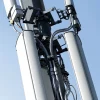Government May Reclassify UK Broadband as Defence Spending

A major newspaper has today claimed that the UK government’s imminent National Security Review (NSR), which is due to be published next week, will expand the definition of national security spending to include everything from a third runway at Heathrow Airport to food prices and rural broadband provision (e.g. the £5bn Project Gigabit scheme).
The move, says the Telegraph (paywall), could make it easier for the Government to reach a hypothetical future defence spending target of 5% of GDP (currently it’s at 2.33% and could reach 3% by around 2029) and, in fairness, telecommunications networks are already considered to be part of Critical National Infrastructure (CNI).
Suffice to say that there might be at least some merit in considering broadband / mobile / internet connectivity related investment as part of national security, and most of us do depend upon it as a critical service. But even so, many people would probably expect national security spending to be focused squarely on areas like the military (soldiers, drones, tanks etc.) and the new approach risks being a bridge too far for how we define such investment. We’re also unsure whether such a change would bring any tangible benefits.
Advertisement
On the other hand, it wouldn’t be the first time that a government has utilised a touch of creative accounting in order to make something seem bigger than it actually is. But we’ll need to wait until the full NSR is published in order to find out exactly how it might choose to categorise broadband investment.
Mark is a professional technology writer, IT consultant and computer engineer from Dorset (England), he also founded ISPreview in 1999 and enjoys analysing the latest telecoms and broadband developments. Find me on X (Twitter), Mastodon, Facebook, BlueSky, Threads.net and Linkedin.
« Dispute Between Vodafone UK and Ex-Franchisees Takes Another Twist





















































Would be a novelty for defense spending to be spent on actual useful national infrastructure rather than bombs I guess…
defence is not just bombs. Its a range of stuff from Cyber security to actual missile detection and defence systems.
What’s the point of infrastructure and no defence when invaded, it won’t save you or teach the aggressor a lesson they wont forget…
Ahhhh but they (UK Gvt)will not be able to get away with claiming it as “core” (guns, ships, planes, missiles etc) defence spending for which the new NATO min spend threshold will VERY soon be set at 3.5%!!!! Which is a very substantial 1.2% above UK current core defence spending.
Broadband projects etc can however legitimately be classified as Defence infrastructure/security spending (to be set at 1.5% minimum) and that’s what it’s for!
It might help UK Government to claim they are able to reach the 5% that Donald Trump (and the Baltic countries) are claiming is needed (including the 1.5%).
As a retired accountant, though, I would say that this investment cannot possibly be really classified as anything but telecommunications infrastructure.
They could include police coffee and doughnuts as well. Then we would already be at 5% or more.
You forgot the Tea bill and stop-offs at McDonalds 🙂
Deckchairs on the Titanic at this point.
The poll is asking for HTTP auth btw.
To my mind there’s a difference between defence spending and national security spending. The NATO target is defence spending only i.e. anything that is to do with the military or feeds into the military. I think it would be hard to argue rural broadband supports the military! National security on the other hand is a much broader topic which includes defence spending but also many civilian activities. I still think rural broadband would be a bit of a stretch to be included under national security but potentially arguable.
Good spot John. It seems to be calling a dependency that it shouldn’t. Disabled for now.
Was that out of Sir Humphrey’s playbook?
With that thinking Dagenham outfall and sewerage works might be considered National Security Infrastructure – after all, that facility has to deal with most of the waste product that comes out of Westminster.
Pathetic.
The Beckton Super Sewer that was built for this purpose 😉
Heck, better get on with the sale of OR (https://www.ispreview.co.uk/index.php/2025/06/bt-ceo-may-consider-spinning-off-openreach-after-uk-full-fibre-build.html) to some foreign investor, (e.g. Cadbury, Royal Mail, insert any well known ex-British company) Then we can ensure any increased spending goes offshore.
FTTP access and comms/satellite connection could conceivably be a positive in a wartime scenario. Particularly with island/ocean sub-sea cable distribution.
Not 100% sure how rural non-military sites can be considered useful to defence. But sharing informaiton in real-time is a bonus
Reality – how do we meet 5% military target without spending extra money? Reclassify defence on things we are already spending money on…
If there is any substance to the story, then the UK would be following in the footsteps of the USA DoD. The USA funds a number of overseas infrastructure projects under the DoD budget. In the UK, such projects are normally funded as part of the FO’s Foreign Aid budget. The USA’s DoD is also used to fund, at least in part, large civil projects at home. One example is the maintenance of the levees in the south and their repair plus upgrades following Hurricane Katrina.
There is also the possibility that this is another of the Telegraph’s stories based on tittle-tattle to draw readership, a few of which have been published in recent months without any other outlet pursuing the stories.